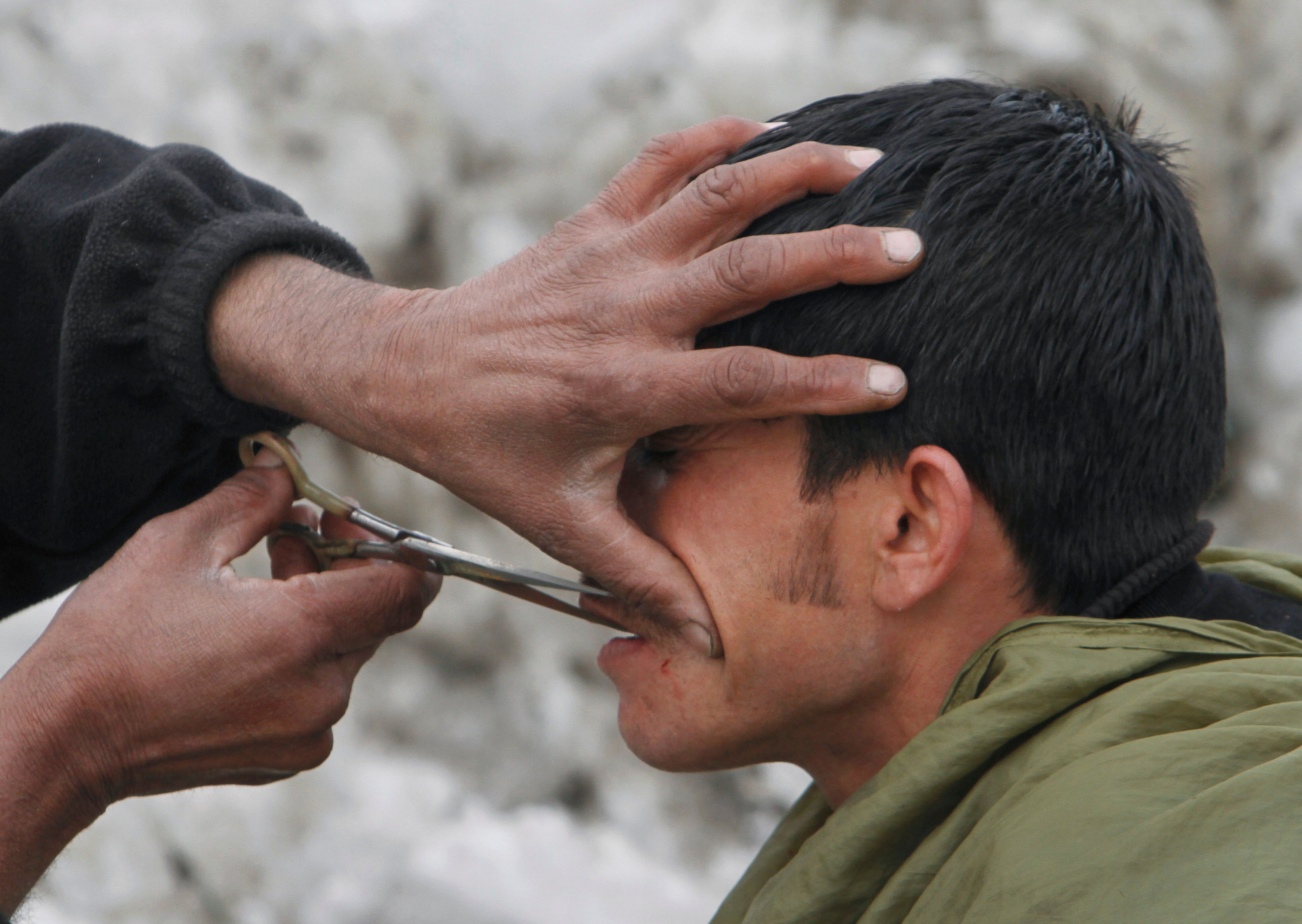
Six months after laws regulating people’s conduct came into effect, the Taliban’s morality police have detained men and their barbers over hairstyles, a U.N. report said.
These laws, published by the Vice and Virtue Ministry last August, dictate many aspects of everyday life in Afghanistan - from public transport and music to shaving and celebrations.
One of the most controversial edicts was the ban on women's voices being heard in public and the requirement for women to cover their faces.
That same month, a top U.N. official warned the laws provided a “distressing vision” for the country’s future by adding to existing employment, education, and dress code restrictions on women and girls. Taliban officials have rejected U.N. concerns about the morality laws.
The report from the U.N. mission in Afghanistan on Thursday said that in the first six months of the laws’ implementation, more than half of detentions made under it concerned “either men not having the compliant beard length or hairstyle, or barbers providing non-compliant beard trimming or haircuts.”
The report said that the morality police regularly detained people arbitrarily "without due process and legal protections.”

During the holy fasting month of Ramadan, men’s attendance at mandated congregational prayers was closely monitored, leading at times to arbitrary detention of those who didn't show up, the report added.
The U.N. mission said that both sexes were negatively affected, particularly people with small businesses such as private education centers, barbers and hairdressers, tailors, wedding caterers and restaurants, leading to a reduction or total loss of income and employment opportunities.
The direct and indirect socio-economic effects of the laws’ implementation were likely to compound Afghanistan’s dire economic situation, it said.
A World Bank study has assessed that authorities’ ban on women from education and work could cost the country over $1.4 billion per year.
The Taliban leader, Hibatullah Akhundzada, has emphasized the primacy of Islamic law and the role of the Ministry of Vice and Virtue in reforming Afghan society and its people.
In a message issued ahead of the religious Eid Al-Fitr festival that marks the end of Ramadan, Akhundzada said it was necessary “to establish a society free from corruption and trials, and to prevent future generations from becoming victims of misguided beliefs, harmful practices and bad morals.”
More than 3,300 mostly male inspectors are tasked with informing people about the law and enforcing it, according to the report.
Nobody from the Vice and Virtue Ministry was immediately available for comment about the report.
Mysterious US military flight to Afghanistan sparks speculation about Bagram air base
How a king’s carpet gave a voice to Afghan women silenced by the Taliban
Son of British couple detained by Taliban calls on US to help secure their release
India’s crackdown on Muslim charitable trusts sparks fears for religious freedom
After Ukraine, Trump is now eyeing Pakistan’s rare minerals
What Asian countries hit hard by Trump’s tariffs are doing to save their economies







